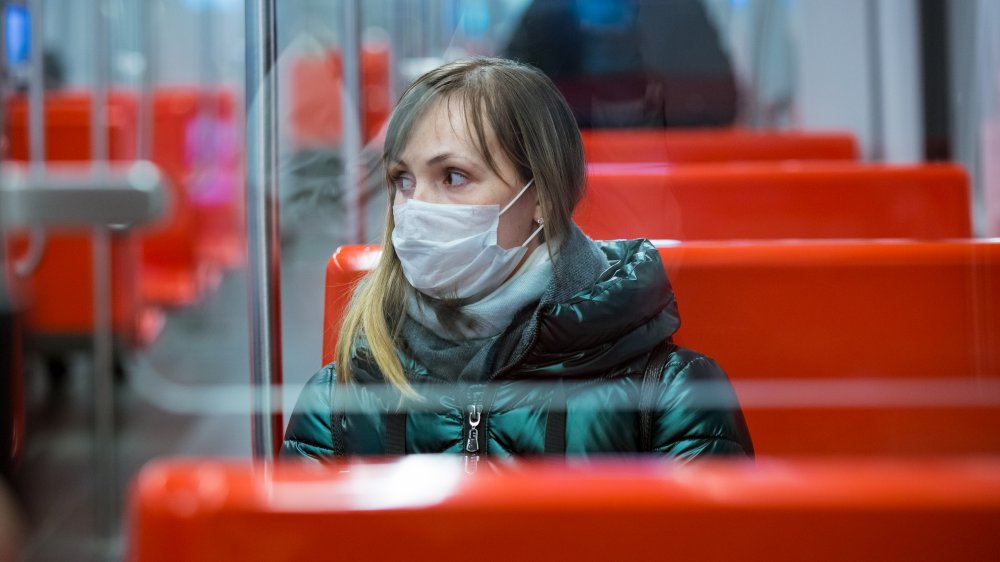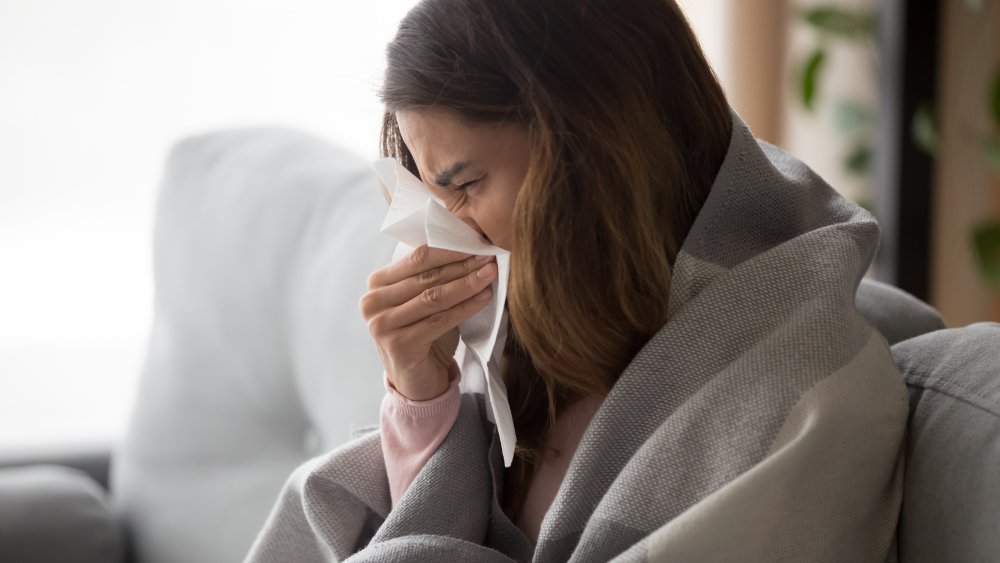The Real Reason Influenza May Have A Lighter Season This Year
Social distancing and other safeguards to curtail the spread of the coronavirus could have the bonus benefit of clamping down on the spread of the flu, health experts say (via CNN). Statistics from the Centers for Disease Control and Prevention show that "widespread adoption of community mitigation measures" to reduce the transmission of COVID-19 earlier this year also decreased positive influenza cases (via the CDC).
The number of positive influenza specimens from clinical laboratories dropped 61 percent from March to mid-May compared with those submitted from September 2019 to February 2020, the CDC says. What's more, interseasonal (or summer) flu dropped to historic lows, with 0.20 percent of specimens from May 17 through August 8 compared to 2.35 percent the previous summer.
The public's continued precautions, coupled with seasonal flu vaccination, could "substantially reduce" the severity of influenza this winter, the CDC says. The Southern Hemisphere had a light flu season amid the pandemic, with Australia reporting just 315 cases — a 99.8 percent decrease from an average of 130,000 cases annually, according to the University of Minnesota's Center for Infectious Disease Research and Policy (via CIDRAP).
However, Edward Belongia, M.D., an infectious disease epidemiologist at Marshfield Clinic Research Institute in Wisconsin, was wary. Too much is unknown about the coronavirus or how it interacts with influenza. "We don't have many [non-influenza] pandemics to study," Belongia said. "The message is be prepared for a bad flu season on top of a bad COVID season."
COVID-19 precautions can protect against the flu
The upcoming flu season presents challenges in identifying symptoms that are similar to COVID-19, according to Leana S. Wen, M.D., an emergency physician and professor of public health at George Washington University in Washington, D.C. With headaches, body aches, and general malaise, it will be "extremely difficult to sort out who has what, especially with the limited testing that we have," she told CNN.
Regardless, because influenza and COVID-19 are respiratory pathogens, measures that guard against spreading the coronavirus also will limit the spread of the flu. "It's the fact you're keeping your distance, wearing a mask, washing your hands more, that you're attentive that someone might have the illness and not know it," she told CNN. "In the past, it might have been acceptable to be sneezing and cough a little and still go to work or school, and now that would not be acceptable. That reduces the risk of transmission, too."
Although the statistics showing a reduction in positive flu cases earlier this year are encouraging, she agreed that people should remain vigilant. "Viruses can linger longer when there's less humidity in the air, and colder weather in the winter means less humidity indoors," Wen told CNN. "Right now, there's a coronavirus storm all over the country. This is the time for us to be hunkering down — what's been driving the most recent surge is gatherings with family and friends."


